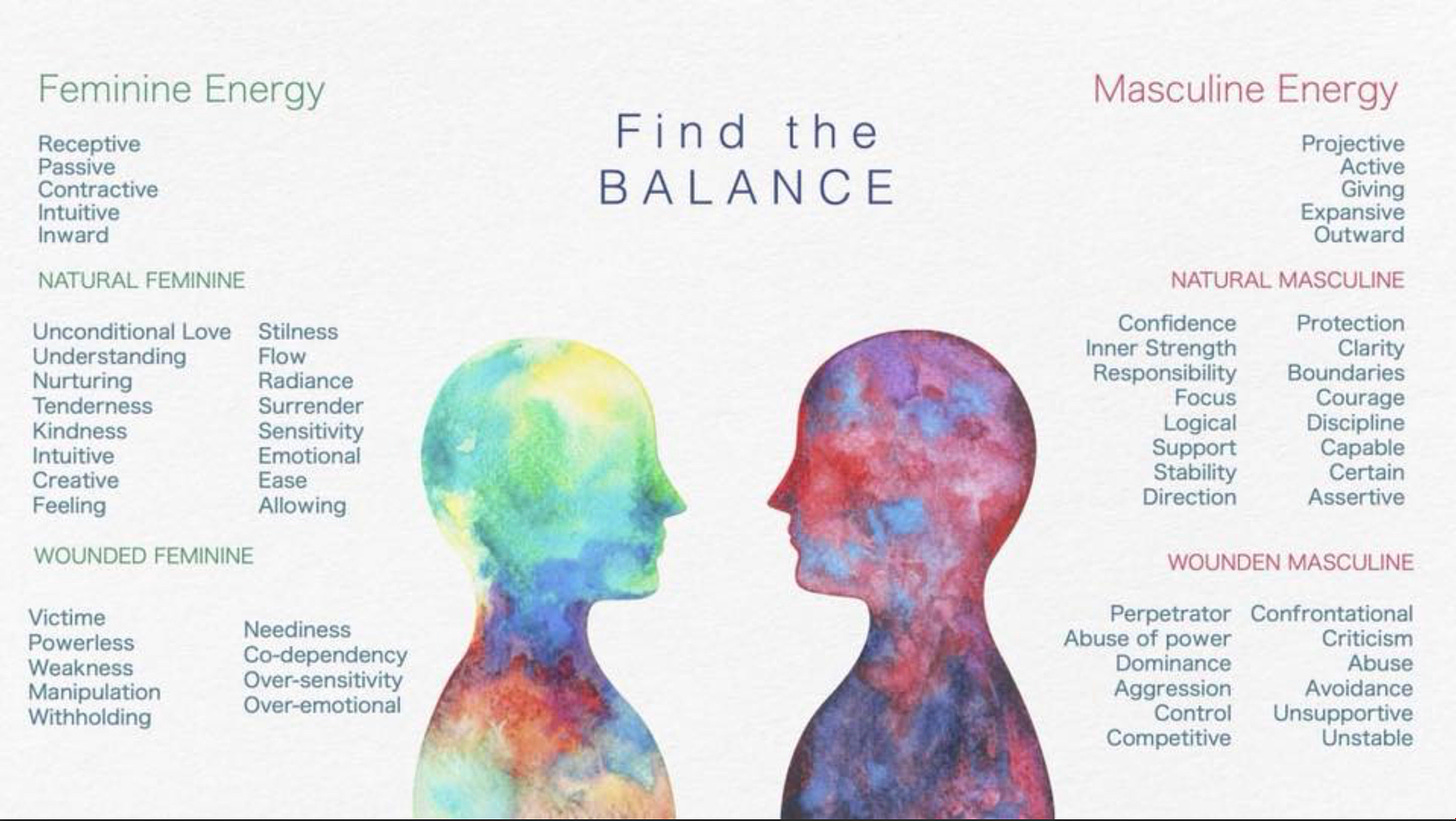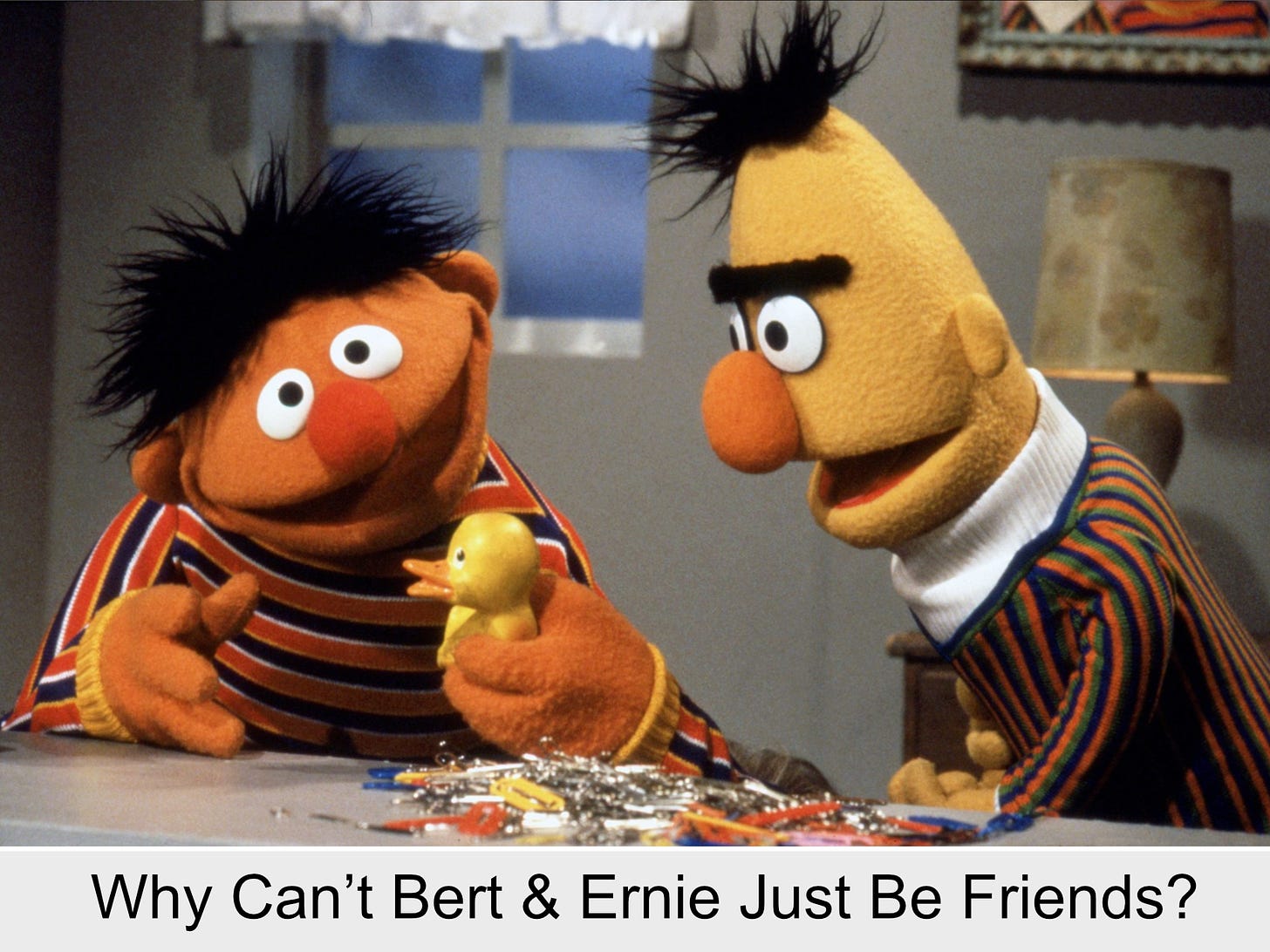Collage created by Hannah Loe (I debated on placing the image upright, tilt your screen if you want that perspective). Photograph of Chris Bumstead.
“No homo.”
I don’t think I’ve heard a phrase more used by men. It’s like a magic wand that’s supposed to thwart off the swarm of gays ready to drop trow in response to the comment made.
Beside it being homophobic, the phrase also illustrates the disconnect between men and the idea of masculinity.
Emotions=gay
Gay=unmanly
So, Emotions are unmanly….
Emotions seem excluded from the experience of manhood so it’s no wonder men seem lost today. What comes to mind when you think of “being a man?”
For the boys interviewed in the book Boys and Sex by Peggy Orenstein, being a man meant hiding vulnerability. You weren’t affectionate with other men, and you weren’t romantic with girls.
What also stood out to me was that one boy said, “having a girlfriend is gay.”
Truly baffling stuff.
How can having a girlfriend be gay? The boy was alluding to the way men are supposed to show up in life, unemotional or stoic, and how partnership is gay because of the vulnerability involved.
I’ve heard boys and yes, even men saying to each other, “that’s so gay/no homo/any other expression.” Right now, the trendy thing to say is “pause.”
Those words are often said after a moment of vulnerability or some sort of action/sentence that comes across as gay. Literally the action could be something as dull as crossing your legs.
Men seem to be on edge, trying to figure out if what they are doing somehow excludes them from the “man club.” As if crossing their legs or taking a dick somehow makes them less of a man. It seems like they’re conflating being unmanly with homosexuality and its stereotypes.
What grinds my gears is the fact that being emotional is also on this list of excluded activities. Emotions are a human phenomenon and you can’t will them away with a “no homo.”
Contextualizing emotions as something that homosexuals and females are only able to express, is kind of weird…
Where Do These Ideas Come From?
A lot of this messaging gets introduced early on in adolescence. Honestly, I don’t see an easy solution to that issue. Coaches are reinforcing these toxic ideas of masculinity on the fields.

Hollywood stars express them on television and in movies. Groups of friends use them to belittle and shame their peers and…. the list goes on.
In adolescence I don’t expect boys to be able to think critically about masculinity. At that age we’re all downloading the information coming from the people in our environments. If a boy doesn’t leave their friend group or hometown, it’s likely that they’ll adopt their viewpoints.
College can be good opportunity for kids to interact with other people with different perspectives. Sadly, the educational system is lacking, and College attendance is decreasing. If schools can’t keep up with the new careers and opportunities people have available online, I don’t see that letting up.
Social media is inflaming the issue by locking men into online echo chambers with other men.
What you have with social media, ironically, is a circle jerk.
Biases get reinforced by members of a fandom and their cult leaders until everyone’s convinced that they’ve broken out of the matrix. Of course, completely ignoring that they’ve created a new one. Click this link here if you’d like to learn more about red pill ideology.
Where Are We Going?

Image credit
Society is trying to shift towards a moderate view of gender roles. This shift towards the middle feels extreme to those who like clear and defined roles for men and women. Traditionalists feel like women are becoming too masculine and men are becoming effeminate. This ignores that gender roles are socially constructed by us all and subject to change. I would also like to point out that we all have the capacity to have “feminine” and “masculine” traits. We’ve labeled these energies according to the binaries but they both exist within us to varying degrees.
If a man needed to care for his children because he became a single dad, it’s not like he would never get better at nurturing. To take things a step further, his ability to nurture exists on a spectrum. Where he falls on that continuum depends on his upbringing and his personality.
He’s caring for his kids and that may make him more emotional, but that doesn’t make him less of a man. Nurturing isn’t a feminine trait that only belongs to females.
I don’t think that anyone wants men to stop being protectors, fathers, and strong pillars of our communities. Instead, we’d like to get rid of the stereotypes that prevent men from being emotional or being able to wear dresses or whatever else. Toxic masculinity is clinging on to what a man looks like and acts like, but that’s such a surface level metric. It’s archaic. It doesn’t allow men to express the variation that exists within masculinity.
Today a man has two choices.
1.) They can accept the old ways of manhood and try to get back to a version of masculinity that is restrictive….
or
2.) They can create a definition of manhood that’s more holistic.
There is no right way to be a man. An individual needs to create their own set of guiding principles that they value.
The holistic approach would have men redefine manhood to include “feminine” needs.
Why the Homophobia?
Connection and intimacy outside of sex is one need that I see men neglecting a lot. Platonic touch is a foreign and misunderstood drive that gets wrapped up in sex. When men fixate on labeling intimacy between other men as gay, it seems like it results from the idea that platonic touch can’t exist.
Toxic masculinity only allows men to exhibit sexual or aggressive touch. Intimacy doesn’t seem to be considered unless it’s attached to sex. The inability to separate the two, leads to men categorizing intimacy with other men as gay. It doesn’t matter whether that’s the man’s orientation. This deep fear of intimacy, and its sexual undercurrent (not to mention the homophobia) are suffocating men.
Platonic touch and intimacy without sex is something everyone could get better at giving and receiving.

So many of my guy friends have told me that they wish they could feel closer to their male friends. They want to be able to hug and say I love you. Younger boys tend to be this expressive, but over time they learn that they need to stop. I’ve always thought that women were lucky because we get to do all of that without the assumption of being gay.
Our culture tends to hyper sexualize relationships as well, but we’re social creatures. If we need to have sex to feel connection, that’s going to distort our ability to access and enjoy platonic touch.
I’m a professional companion and men seek me out for sex, or so they think. Usually what they need even more is to connect with someone they can be vulnerable with. I pride myself in providing a safe space for men, and it’s wild that in the eyes of some, men don’t need that.
Somehow their privilege in some areas (wealth/status) exempts them from the right to intimacy and connection. People are also blind to how one leads into the other. Wealth and status usually alienate a man from developing intimacy and connection because they don’t have the time. I see this with clients who prioritized their career in order to provide for those around them.
I just want men to know that touching another man doesn’t make you gay. Being gay makes you gay, and it’s ok if you’re gay. And lastly, intimacy can be sought out without sex and that can be fulfilling. That’s why I also offer cuddle sessions as a companion.
Do Men Get a Redemption Arc?
I’ve been thinking that patriarchy doesn’t have a redemption arc right now. Since patriarchy and toxic masculinity are tied to men themselves, I fear that men don’t have one either. Men might always be trash and that sucks.
Patriarchy and toxic masculinity are systems that we all have to live under. They oppress us all. Those systems are terrible, but some of the men within them are also victims. Sure, there are other men perpetuating horrible ideas and keeping these systems alive, but the majority are trying to navigate through patriarchy. They are dealing with a system imposed upon them.
If you aren’t some ultra rich asshole benefiting, you’re a pawn in the system being taken advantage of.
The sad part is that patriarchy is perpetuating ideas that are alienating men even more. Women don’t feel safe, but also men don’t feel safe around other men. A huge part of that patriarchal system is upheld by capitalism. Alienated men make for the best captive audience to shill courses, supplements, and pyramid schemes to.
So, here’s what I think men should do. I’m not an expert, but I care about men and their well-being, so I took a stab at a solution.
1.) Absorb as many viewpoints on masculinity as you can.
First without judgement and simply to understand the different perspectives on it. Then you can start critiquing the information. This step is important because your personal truth will be hiding in the messages of many people.
If those perspectives happen to be from Fresh & Fit and the like (I hope you move on eventually), I don’t think you should immediately write them off. Often the truth is buried and you’ll have to sift through the BS and take what resonates.
The kernels of truth in the message of polarizing figures like Fresh & Fit, is what men are after. But there’s a tendency to trust someone’s complete message because you agree with one part of it. If you only consume one person’s content or one type of content, you’re in danger of radicalization. You allow the programming of your mind by exposing it to the same talking points repeatedly. You undermine your ability to question those ideas.
2.) Try those viewpoints out.
Don’t just blindly accept perspectives as truth, try out the ones that resonate with you. Rate those frameworks of masculinity in their efficacy in the real world. Note if those viewpoints seem to be shaping your internal world positively.
Do you feel freer? More confident? Are you able to satisfy your needs in the real world with minimal harm? Are you gaining greater understanding of yourself? Do these perspectives allow you to judge yourself less while keeping yourself accountable for your impact?
3.) Craft a set of ideals, mantras, and frameworks that you know work for you.
It’s ok to feel as if self-mastery/actualization is still a ways away. At this point you should have a sense that your definition of manhood is getting you closer to your goals.
Collect the best ideas on manhood. The ones that allow you to contribute meaningfully to those around you. Having a sense of personal power doesn’t have to come at the expense of others.
4.) Create a story in your mind that helps you feel like the hero in your own personal narrative.
A hero’s journey is important for your soul. Try a couple of narratives until you feel motivated to keep working at self-mastery. Pick a couple areas of improvement that capture your attention and figure out why. This narrative is the reason you’ll keep working on yourself.
If being strong is important to you…
- Challenge yourself physically (do a Tough Mudder or something).
If emotional intelligence is important (it will be if you take a holistic approach) ….
- Face your emotions and work out how to be more vulnerable.
- Find new friends who express their emotions if your current ones don’t.
- Seek out platonic female friendships and take sex completely off the table. Being friends with women could give you a space to try out being vulnerable.
Ultimately, don’t strain your friendships too much by dumping all your emotional baggage on one person. If you can practice vulnerability with several friends that can be a good start.
- Get therapy and let the clinic know you’re looking to tackle masculinity and emotional expression during intake.
Find those safe spaces but be wary of falling into echo chambers. You want to find support from people with different perspectives.
Being emotional doesn’t make you weak. In fact, healthy regulation of emotions is the toughest thing you’ll learn.
If sexual prowess is important…
- Understand where your skill set is at and try to learn about the technical aspects of wooing or having sex with a woman (test them out).
- A professional companion could walk you through what you might be doing wrong. I know I’m willing to help men get better at pleasing their partners! I’m sure other workers are too. Hire one! We could even help you get better at taking a girl out on a date.
- Understand that a woman wants a man who is dependable, kind, has clear boundaries and understands themselves. If she doesn’t, she might have more personal development left to do.
Knowing what to do with your meat is only half the work of developing the area of sexual mastery. When you become a well-rounded individual, you aren’t going to want the attention of just any woman. Interactions with women who don’t have your values will start to feel hallow. You’ll focus less on them and find women who reflect how you feel about yourself. It’s surprising how all these things lead to more satisfying sex. Here what my partner had to say about his sexual energy (he was cooking so excuse the audio)!
You get the point. In life we all start out as beginners. Believing you can get better in the areas of your life that are most fulfilling to you, will lead to self-mastery. Take time cultivating that hero’s journey.
5.) Be consistent and celebrate your personal victories.
Showing up on your own terms is rewarding and if you can make that work in the real world, you’ll feel like a man. Celebrate every step of self improvement.
The process of becoming a man is the process of self-actualization. Men and women and everyone in between, are on the same journey to living fulfilling lives. It’s gotten harder for everyone. That doesn’t diminish how hard it is for men, especially in this modern age. However, men still have a responsibility to undergo self actualization. If not for society, then for themselves.
I’ll leave you with this:
The secret to getting pussy is being gay.
Counterintuitive, I know but most things in this reality are.


